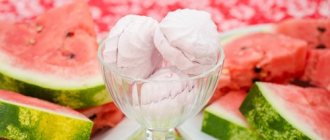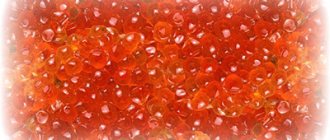The mother's body needs to recover after childbirth. Grapes have a lot of vitamins and beneficial elements that prevent the development of many diseases and normalize the functioning of the body. In addition, sweet and sour fruits will lift your spirits, relieve depression and add strength.
However, most breastfeeding women have a question about whether it is possible to eat grapes while breastfeeding. Indeed, during lactation, especially in the first months of a child’s life, nutrition should be treated very carefully. When feeding, substances enter the newborn’s body along with the mother’s milk.
Many products have a negative effect on the baby’s still fragile body. They cause allergies, cause colic and other digestive disorders.
Let's figure out whether a mother can eat grapes while breastfeeding.
Beneficial features
Doctors are convinced that grapes are a healthy product that has dietary and healing properties. The berries are used for diseases of the kidneys, liver and bronchi. The fruits help get rid of insomnia, constipation and heart failure.
Interestingly, the chemical composition of grapes is similar to the consistency of breast milk. Both berries and milk contain three essential vitamins that are involved in the hematopoietic process and stabilization of blood pressure. These are folic acid (B9), vitamins P and K.
Grapes contain a lot of vitamins and macroelements, each of which has a beneficial effect on the body of mother and baby.

Vitamins and macroelements
Useful action
Fruits increase hemoglobin levels and improve blood composition. Cleanse the body of accumulated toxins and support the immune system. And natural grape juice will cure heart and vascular diseases.
Can a nursing mother eat grapes: green and black?
Publication date: 09/15/2019 |
Finding a person who doesn't like grapes is not easy. And all thanks to the variety of varieties of these beautiful fruits: cabernet, muscat, chardonnay, sauvignon and many others.
Like any other fruit, grapes have a number of beneficial properties for the body. The berry includes various vitamins: C, B1, B2, folic acid, as well as niacin, beta-carotene and minerals such as calcium, potassium, magnesium, etc. All these compounds will have a beneficial effect on health. In addition to the above, grapes also contain glucose, which is necessary for energy production. [1]
Finding a person who doesn't like grapes is not easy.
About grapes: many pros and a few cons
Grapes are very healthy! Grape fruits contain sugar, fiber, essential amino acids, ascorbic acid, vitamins A, B, E, P, K, folic acid, pectin substances, calcium, zinc, magnesium, selenium, potassium, enzymes. Grapes improve blood composition and increase hemoglobin levels. Berries or red grape juice are an effective treatment for many diseases of the cardiovascular system. Grapes help the liver cleanse the body of accumulated toxins. It supports the immune system, normalizes cholesterol levels, has antiviral properties and prevents vision loss. Folic acid, vitamins P and K are directly involved in hematopoiesis and help nursing mothers cope with postpartum anemia, insomnia and constipation. Antioxidants in its composition remove toxic free radicals, slow down the aging process, activate reparative function and eliminate fatigue. And it can bring many, many more benefits... This is just a medicine given to us by generous nature! There is even a special method of treatment with grapes - ampelotherapy.
But during breastfeeding, grapes can cause digestive problems for mother and baby...
On the one hand, the mother’s body after childbirth needs to recuperate; it is exhausted by a long pregnancy.
Negative effects of grapes during the lactation period

Despite the fact that grapes are endowed with so many beneficial properties, you should eat them in limited quantities during breastfeeding. It can cause various health problems for the newborn and his mother.
It is worth noting that grapes are a strong allergen, so women during lactation should use them with caution. Allergies in a child can manifest themselves in the form of rashes on the skin, and in more severe cases, attacks of suffocation and anaphylactic shock can occur.
Negative consequences
However, eating grapes during lactation can also lead to devastating consequences. Intestinal function is disrupted and dysbiosis appears. The main danger is allergies. The body of a newborn, especially in the first three months of life, is susceptible to allergic reactions to many foods.
Eating grapes can cause problems with intestinal upset, increased gas production and intestinal colic in the baby. Please note that berries contain high levels of sugar, so excessive consumption of this fruit often leads to weight gain.
Doctors do not recommend eating grapes for people with:
- diabetes mellitus;
- obesity;
- gastrointestinal disorders;
- stomach ulcer.
To avoid allergies and other negative consequences, follow a few simple rules. If you follow the recommendations, grapes can be consumed without fear for the health of the mother and the development of the baby.
How to eat grapes during lactation
- Wash berries thoroughly before eating;
- In the first 3-4 months you should refrain from eating fruits;
- Start introducing the product into your diet with natural grape juice. At the same time, dilute the juice with water in a 1:1 ratio.
- Drink the juice in the morning on an empty stomach. Then monitor the newborn’s well-being for one or two days;
- If there is no allergy, then you can gradually introduce grapes into your diet. If so, repeat the procedure after at least two months;
- You can switch to berries after two or three doses of juice. First, you are allowed to eat one to three berries;
- The daily norm is 100 grams, the weekly norm is 200;
- It is not recommended to eat berries more than twice a week.
Breastfeeding mothers can eat grapes. However, you should be careful when introducing such a product into your diet. After all, the fruit contains an allergen, a large amount of sugar and can negatively affect digestion.
The best option is freshly squeezed grape juice and homemade fruits grown in your own garden or vegetable garden. These grapes can be consumed by nursing mothers without risk to health, because the product does not contain preservatives, dyes or other harmful elements.
If you managed to introduce grapes to the menu, then eat the fruit not only separately, but also feel free to add it to salads, cottage cheese or yogurt. You will receive the necessary dose of vitamins and diversify your diet.
Grapes are a fairly popular berry that people usually eat during the summer and winter months. Since it is very important to follow the correct diet when breastfeeding, nursing mothers often ask whether grapes can be consumed while breastfeeding a newborn. There is no definite answer to this question, since it is important to take into account many factors that can cause different reactions in the baby.
A few words about cooking mushrooms
How to prepare dried moss mushrooms
It is better to wipe large specimens with a cloth and cut into segments, which are laid out on a grid. When drying on a wire, they often break through and fly off. Small mushrooms, if they are not planned to be salted or pickled, are dried in a suspended state. Dry mushrooms are stored in tightly closed containers, since the entire cabinet where the mushrooms are stored will be saturated with their smell. Well-dried moss mushrooms can be ground into powder for making sauces.
How to freeze moss mushrooms
The washed mushrooms are boiled in water for 20 minutes, drained, allowed to drain and frozen in containers. In winter, the same dishes are prepared as with fresh mushrooms. Stored frozen for 1 year.
Recipe for salted moss mushrooms
Boil the caps of large fly mushrooms for 20 minutes. Cool and transfer in a colander to a bucket lined with horseradish, currant, cherry leaves, and dill umbrellas. Do not add garlic as it turns blue. Sprinkle the first layer with salt, lay out the next one, etc. You can mix it with any other pickled mushrooms, but the brine will be dark.
How to cook pickled moss mushrooms
According to classical technology, the dish is prepared in two stages. First, boil the mushrooms for 20 minutes, then drain and re-cook in the marinade without vinegar for 10 minutes. Put the spices and pour in the vinegar, let it boil and put it in prepared jars, roll it up and turn it over. For 1 liter of marinade add 1.5 tbsp. l.
salt, 1-1.5 tsp. vinegar essence, allspice – 2 peas, bay leaf – 4 pcs., cloves – 5-6 pcs. Dill umbrellas are placed at the bottom of each jar. For the especially lazy, we can recommend adding salt and spices directly to the broth where the mushrooms are cooked, but the volume should not be very large. The dish will be darker, but the spirit will be expressive. Some lovers always add a little sugar to marinades to soften the taste.
The whole mushroom is eaten. Before cooking, the surface is cleared of colored peel. This takes a little time, and it is cooked in salted water for about thirty minutes. There are a lot of ways to prepare moss mushroom. It is pickled, added to soups, steamed, fried in sour cream or butter.
One of the most popular methods is hot salting. To do this, the mushrooms are doused with boiling water so that they retain their color, and then cooked in boiling brine in an enamel bowl. Mushrooms can also be dried using various methods. They are strung on threads and hung in a ventilated, dry room or in the open air. Moss mushrooms are often dried in the oven or over a hot burner. Let's look at several recipes on how to cook flywheel mushroom.
Ingredients: a handful of dry mushrooms, onions, carrots, greens. For noodles: half a glass of sour cream, one egg, half a spoon of salt, one hundred and fifty grams of flour.
Before cooking the flywheel mushroom, pour boiling water over it and steam under the lid for twenty minutes. Then the mushrooms are cut into pieces, transferred to a bowl where they were steamed, poured with boiling water and cooked for one hour, after which fried onions and carrots are added.
Next, prepare the noodle dough. To do this, mix all the ingredients, roll out the layer and cut it into wide strips, each of which is rolled in flour. The noodles are placed in the prepared mushroom broth and boiled for twenty minutes, then the greens are added. Mushroom noodles are served with sour cream.
Beneficial features
The beneficial properties of grapes are determined by the fact that the berry contains 2.5-6% organic acids, which have a beneficial effect on human health. Grapes also contain 0.2-1.5% pectin components. Scientists have discovered various essential acids in grape berries:
- lysine;
- arginine;
- methionine;
- histidine;
- leucine

The product also contains nonessential acids in the form of cystine and glycine. All these components actively affect metabolism, so it is very important that a person consumes berries in reasonable quantities. The dry mass of the berries contains about 60% potassium, which significantly improves the functioning of the heart and kidneys.
The berries also contain B vitamins and other beneficial substances. Regular consumption of grape berries helps normalize heart rate and blood pressure.
Due to the presence of expectorant components in the composition, the performance of the respiratory system improves and, as a result, sleep improves.
The berry has many benefits, so it is worth considering it as a way to improve your overall health.
Tips for choosing grapes
When you come to the market, you can see a large number of different grape varieties, among which it is sometimes difficult to choose the most suitable one. Black, white, pink, red grapes look very beautiful, but in order to choose not only sweet, but also ripe grapes, you need to know a few nuances:
- First of all, you should understand that high-quality grapes do not fall off the bunches, and the berries do not have various damages and strange spots.
- It is also worth paying attention to the brush. The berries should not be wet or moistened, and the stem should retain its natural green color and not have a dry tip or various spots.
- If the grapes are fresh, then they have a specific coating on them. The absence of a prune (waxy) coating indicates that the grapes are several days old and were stored incorrectly.
- There is also a secret that allows you to choose the most delicious and ripe grapes. The most unripe berries are always at the bottom of the bunch, so when choosing each bunch, it is advisable to try one of the lowest grapes.
It is quite easy to choose beautiful and tasty grapes, but a large and maximally colored product will not always be sweet, so it is worth paying great attention not only to external factors, but also to taste.
High glucose content
Like any product, it is important to consume grapes correctly. 1 kilogram contains about 300 grams of various sugars. Depending on the ripening period and ripeness of the bunch itself, the following may predominate in the berry:
Sugary substances such as glucose and fructose have minimal sweetness in taste compared to sugar, but at the same time they are a necessary product for the human body. When fully ripe, grapes contain fructose and glucose in almost equal proportions.
If the brush was immature, then it contains more glucose. Fructose predominates in overripe berries, so they are more sweet and sometimes even cloying in taste.
Contrary to popular belief that grapes are a rather harmful product due to the increased amount of sugars, their benefits have been proven by many scientists. Grapes have a beneficial effect on the body in reasonable doses and can completely improve its performance.
When breastfeeding a newborn, grapes also promote milk production, so a young mother should not give up her favorite product when feeding her baby. Despite its benefits, you should not get too carried away with grape bunches, as excessive consumption can be harmful to health.

Glucose is one of the most common sources of energy in the body. It is found in the juice of many fruits and berries, including grapes, which is where the name comes from - grape sugar
Is it possible to eat grapes while breastfeeding?
All nursing mothers know that their diet should be optimally balanced, taking into account the beneficial properties of various food groups. A special place in it is given to fruits, because they are the main source of vitamins and microelements. However, not all of them may be useful during breastfeeding. There is a certain group of so-called forbidden fruits, the consumption of which must be treated with extreme caution.
Many mothers doubt whether grapes, including green ones, are harmless during breastfeeding, and whether they can provoke colic, excessive gas formation and allergic reactions in infants.
Can mothers have grapes during breastfeeding?
Grapes, with their unique composition, are considered a very useful product. It perfectly helps restore weakened strength after pregnancy and childbirth, and is an excellent preventive measure for postpartum anemia, depression, loss of strength, constipation, insomnia and exacerbation of chronic diseases that can occur against the background of a decrease in the body's natural defenses.
Grape juice is an effective stimulator of the lactation process, activating milk production. However, using it thoughtlessly while breastfeeding is categorically not recommended. Everything that is on a woman’s menu during breastfeeding ends up in the baby’s body through breast milk. This should be especially taken into account until he is 3 months old, when the likelihood of so-called infant colic is high.
It is also important that a nursing mother should take care of her health. It is not recommended to consume grapes for women who suffer from the following diseases:
- obesity, because grapes are saturated with sugars in an easily digestible form;
- stomach ulcer;
- diabetes;
- prone to diarrhea.
It is known that grape skins remain in the stomach for a long time in an undigested state and cause fermentation and increased gas formation in mother and baby. Some varieties of grapes, for example red, which contain flavonoids, can provoke allergic reactions. Therefore, when breastfeeding, excessive consumption of red grapes by a nursing mother can cause skin rashes in the baby that look like diaper rash or prickly heat.
In addition to the listed unfavorable properties of grapes for the period of breastfeeding, a nursing mother and her baby may experience headaches, irritability, tearfulness, and nervousness.
Beneficial and harmful properties of grapes for breastfeeding
Grapes are considered a very useful product, because they contain:
- vitamins A, B, P, E, K, H, C;
- amino acids: arginine, methionine, glycine, lysine, leucine, histidine, cystine;
- folic acid;
- organic acids;
- minerals: potassium, calcium, magnesium, manganese, aluminum, bromine, nickel, zinc, chromium, cobalt, silicon, selenium;
- enzymes;
- phytoncindes;
- cellulose;
- bioflavonoids;
- easily digestible sugar;
- pectin substances.
Thanks to this composition, by consuming grapes during breastfeeding, you can increase hemoglobin levels, improve blood composition, normalize the functioning of the cardiovascular system, cleanse the body of toxins, increase the antiviral properties of the body, normalize cholesterol levels, and carry out effective vision prevention.
Thanks to the content of beneficial antioxidants, it is possible to get rid of free toxic radicals, the aging process is inhibited, the feeling of fatigue is effectively eliminated, and the reparative function is quickly activated.
Berries can also be used to treat the heart, kidneys, liver, bronchi, as well as diseases of other systems and organs. Its components are involved and are building materials in the formation of the child’s bones.
However, as with other products, the consumption of grapes during breastfeeding must be treated with extreme caution, especially before the baby reaches the age of 3 months. Consuming this seemingly very healthy product may have side effects. For example, due to its sugar content, it is undesirable for people suffering from diabetes. In addition, grapes can cause excessive fermentation in the stomach, which is accompanied by pain, sometimes severe.
Which grapes are best to eat during breastfeeding?
After the baby reaches the age barrier of 3 months, the nursing mother can gradually and very carefully begin to eat grapes. Having eaten a new product, it is imperative to monitor the child’s reaction to it: how the intestines reacted, whether allergic rashes appeared.
To avoid unpleasant consequences, it is not recommended to combine grapes with such products as: fatty meats, carbonated drinks, fermented milk and dairy products, kvass, baked goods and other baked goods, as well as some other fruits and vegetables.
Before eating grapes, it is better to peel them.
It is known that grapes have a beneficial effect on the body of a nursing mother, regardless of which varieties she prefers, red or green. If we take into account all the beneficial properties of these berries, both therapeutic and dietary, the high content of mineral salts and microelements, then its use can be considered not only acceptable, but also necessary during breastfeeding. At the same time, observing the most basic standards of caution and dosage will save the nursing mother and baby from undesirable consequences.
prokrohu.ru
Can a nursing mother eat green grapes?
Many young mothers are afraid that their child will develop various allergic reactions in the form of a rash or a tummy ache. It is very important after the birth of the baby to follow a certain diet that will prevent stomach problems and also protect the baby from rashes.
Grapes are a rather controversial product, as they are not allergenic, but due to the increased sugar content, a child may have stomach problems.
You should not take risks and introduce the product immediately after the birth of the child. The optimal solution would be at the age of 2 months - at this time the baby’s stool normalizes, thanks to which the child is more likely to cope with a new product in the mother’s diet.
If there is an excessive desire, then you can try to introduce the product per month, but you should be very careful about changes in the baby’s condition. Green grapes are usually the most hypoallergenic, so you can try them.
Next, you can introduce black and red grapes - if there is no reaction to green grapes during breastfeeding, then with a high probability other varieties of berries will not cause negative reactions.

Green grapes for breastfeeding are possible if the baby has problems with stool - constipation
Despite the mother's choice of grapes, it is worth adhering to certain standards when breastfeeding, since overeating sweet foods can cause a rash in the baby. Do not exceed the recommended limits, which differ depending on the grape variety and its sweetness.
It is best to introduce grapes gradually, starting with just a couple of berries and working up to normal levels over the course of a week.
It is worth considering that it is better to introduce grapes as a separate meal, as they are not compatible with all foods. Grape berries should not be combined with:
All these products in combination with grape berries can lead to intestinal upset in both mother and child.
Can a nursing mother eat grapes?
The body of a nursing mother especially needs a balanced supply of vitamins and minerals; this will affect the quality of breast milk and, accordingly, the health of the baby. Fruits are an important source of vitamins, but are all fruits acceptable when breastfeeding a baby? For example, can a nursing mother eat grapes? You can and should use it, but taking into account some nuances.
Grapes, due to their composition, are a product that promotes good lactation. The beneficial substances contained in it make mother's milk more nutritious for the baby.
In some cases, for problems with insufficient milk supply in the mother, grape juice is used. It affects the secretion of the mammary glands and activates milk production in a woman.
Berries have a beneficial effect on eliminating postpartum symptoms such as:
- constipation;
- postpartum anemia;
- insomnia.
The high content of vitamins (A, K, P, B, E), ascorbic and folic acids, pectin, calcium, selenium, magnesium and enzymes - all this allows us to talk about the exceptional benefits of grapes for both a nursing mother and her child.
Breastfeeding: exceptions for eating grapes
Grapes are not allowed during breastfeeding if the mother has some health problems:
- stomach ulcer and gastritis;
- diarrhea;
- diabetes and obesity.
Despite the exceptional benefits of grapes, it is not advisable for mothers to consume grape peels. This is due to the fact that the peel is digested over a long period of time, provoking fermentation and, as a result, increased gas formation.
Grapes often provoke intestinal colic in infants, which manifest themselves in the first 3 months of life.
In addition, if the mother consumes grapes in unlimited quantities, then the child’s weak intestines can also fail. This will manifest itself in the form of constipation or diarrhea.
Therefore, in the first three months of life, the mother should especially monitor her diet. Later, the child’s intestines will become stronger and problems should not arise.
Some varieties of red grapes, the skins of which contain a high concentration of flavonoids, can cause allergic reactions in infants. But this happens extremely rarely in infants who are prone to allergies.
Recipes for dietary dishes with grapes
There are many original dishes, but not all of them are possible while breastfeeding. One of the dietary recipes that you can use while breastfeeding is chicken breast salad with grapes. It includes:
- 150 g boiled chicken breast;
- 100 grams of hard cheese;
- 150 grams of grapes (preferably the raisin variety);
- 1 teaspoon Dijon mustard;
- 1 coffee spoon of honey;
- 1 tablespoon lemon juice;
- 2-3 tablespoons of sour cream;
- greens, salt, pepper to taste.
It is worth considering that if a child is allergic to honey, it is better not to use it when preparing a salad. You can also omit mustard if there is incompatibility.
The salad is prepared quite quickly, so its preparation will not be difficult even for a very busy mother. The chicken breast must be cut into small pieces, the cheese grated on a coarse grater, and the grapes cut into halves. Next you need to add mustard, honey and lemon juice.
Next, you need to add salt, pepper and herbs to taste and pour sour cream over the salad. After adding all the ingredients, the salad must be mixed again.
There is also an easier salad recipe suitable for pregnant women. Includes:
- 200 grams of soft cheese without salt;
- 200 grams of dark grapes;
- a bunch of any lettuce;
- 1 tablespoon freshly squeezed lemon juice;
- 40-60 grams of walnuts;
- 1 tablespoon olive oil;
- 2 tablespoons of honey.

If necessary, you can remove honey from the recipe. The cooking process involves laying out a bed of lettuce. Next, you need to cut the cheese into cubes and place them on the leaves. Mozzarella is best suited for salad.
At the next stage, pre-washed grapes need to be cut in half and placed on top of the cheese. Next, you will need to prepare the dressing - to do this, mix nuts, honey, lemon juice and olive oil in a blender and grind until a homogeneous sauce is formed. The finished sauce is poured over cheese and grapes on a bed of lettuce.
Allergy risk
Another negative consequence is an allergic rash. Usually, rashes appear within 24 hours after consuming an unwanted product, but in some cases the reaction can last up to three days.

Food allergies in infants
Usually, when you stop using the product, the rash can go away on its own, so if grapes are not suitable as a food product for a nursing mother, then by eliminating them from the diet, you can notice a gradual disappearance of the rash.
It is worth noting that the child’s gastrointestinal tract gradually adapts to new products, so even if there is a negative reaction at the first attempt, you can try to reintroduce the product after a month.
Pros and cons of introducing grapes into a nursing woman's diet
First of all, grapes contain a lot of useful substances that have a beneficial effect on the body of both mother and baby. Reasonable consumption of berries will make your diet more nutritious, balanced and varied.
If, nevertheless, the child has a negative reaction to grapes, then it is worth postponing the introduction of this product into the mother’s diet to a later time so that the gastrointestinal tract can adapt to new conditions.

When breastfeeding a newborn, the entire complex of vitamins and beneficial elements enters his body along with mother's milk. However, along with them, the child also receives other components contained in food products from the nurse’s menu. That is why it is necessary to be careful when choosing and introducing food products during breastfeeding. Often young mothers have a question: is it possible to eat grapes while breastfeeding a newborn?
After a successful pregnancy, a woman in labor is in dire need of intensive recovery. The benefits of having fresh grapes on the nurse's menu when breastfeeding a baby are obvious, but they can lead to an allergic reaction or disruption of the digestive system of the newborn.
So, is it possible to have grapes while breastfeeding, how to properly introduce the berry, what is the optimal amount of the product in the nurse’s diet?
Grapes during breastfeeding: pros and cons
The mother's body needs to recover after childbirth. Grapes have a lot of vitamins and beneficial elements that prevent the development of many diseases and normalize the functioning of the body. In addition, sweet and sour fruits will lift your spirits, relieve depression and add strength.
However, most breastfeeding women have a question about whether it is possible to eat grapes while breastfeeding. Indeed, during lactation, especially in the first months of a child’s life, nutrition should be treated very carefully. When feeding, substances enter the newborn’s body along with the mother’s milk.
Many products have a negative effect on the baby’s still fragile body. They cause allergies, cause colic and other digestive disorders.
Let's figure out whether a mother can eat grapes while breastfeeding.
Grapes for breastfeeding: pros and cons.
Contraindications
- diabetes;
- diarrhea;
- inflammation of the colon mucosa;
- acute forms of tuberculosis;
- increased BMI, etc.
adjusting heart rhythm;
Benefits of grapes
The practice of using the fruits of the plant dates back more than seven thousand years. Pediatricians say that grapes for breastfeeding are an irreplaceable product rich in vitamins and nutrients; the fruit has a dietary and healing effect.
Grapes are recommended for use in the treatment and prevention of diseases associated with the kidneys, liver, and bronchi.
Any variety of fruit is effective for:
- insomnia;
- excessive nervousness;
- violations of the frequency, color and fractional composition of stool;
- removal of waste;
- pathologies of the cardiac and nervous systems.
You need to know this! The chemical composition of grapes is identical to breast milk. Both products contain three vital vitamins, vitamins P, K and folic acid. These components take part in blood-forming processes and stabilize blood pressure.
Compared to other fruits, the plant has a high calorie content: 100 grams of the black variety contains 73 kilocalories, red - 40 kilocalories, green - 38 kilocalories. However, the high calorie content is compensated by an excellent set of nutrients.
The fruit includes many vitamins and beneficial elements, each component has an effect on the body of the mother and the newborn. Below is a detailed table of substances and their effects.
| A | Improves skin structure, develops and strengthens bones, supports vision |
| Group B | Stabilizes gland metabolism and liver function, regulates the activity of nerve cells, |
| B6 (folic acid), P, K | Promotes normal blood clotting, relieves insomnia and headaches |
| C (ascorbic acid) | Strengthens immunity, fights diseases |
| E | Accelerates lactation, regulates the functioning of hormones |
| PP (nicotinic acid) | Normalizes blood pressure, muscle function, liver |
| Calcium | Supports normal functioning of the nervous system; improves the condition of hair, nails and skin |
| Zinc | Promotes normal metabolism, synthesizes and breaks down protein, carbohydrates and fats |
| Magnesium | Ensures bone growth, development and function |
| Selenium | Restores liver and pancreas cells, has a positive effect on the thyroid gland, prevents the appearance of many diseases and the newborn |
| Potassium | Regulates oxygen metabolism, improves brain activity and memory. |
| Antioxidants | Slow down oxidation and aging, remove toxic substances from the body, relieve fatigue |
| Useful components | Impact on the body |
| Vitamins: | |
| A | Increases visual acuity, takes part in the formation of bone tissue and tooth enamel. Activates rejuvenation and restoration processes of a young mother at the postpartum stage, this is especially important. Restores, improves and strengthens hair, skin, and nails. Responsible for the normal development of the child, increases his intellectual capabilities. |
| Groups B | This group of vitamins is responsible for the normal functioning of the nervous system, takes part in the formation of bone and muscle tissue, affects the functioning of the liver, the process of hematopoiesis, and metabolism. This includes water-soluble simple organic compounds - eight elements. With their help, a nursing mother receives thiamine, riboflavin, pyridoxine, and cyanocabalamin. These components allow the body to convert carbohydrate components coming from food into the energy product - glucose. |
| AT 6 | Establishes the balance of cholesterol in the blood, eliminates skin itching. Stabilizes the state of the nervous system and psyche of a nursing mother - reduces irritability and aggressiveness. Helps quickly overcome nervous breakdowns. |
| K, R | Vitamin K is enormously important for the full growth and development of infants. Substances are necessary for normal blood clotting. |
| WITH | Forms and strengthens the immune system. It lifts your mood, reduces the level of depression, eliminates the feeling of loss of strength and weakness. Increases energy potential. By neutralizing pathogenic bacteria, microorganisms and toxins, it helps eliminate colds, viral diseases, and inflammatory processes. Increases the strength of connective tissues and activates their functioning. Promotes good absorption of beneficial microelements by the digestive organs. |
| E | Activates and accelerates adaptation processes in the body of a young mother; this is especially important at the postpartum stage. Restores normal hormonal levels. Has a positive effect on hair, skin, and nails. Delivers nutrients and oxygen to every cell of the body. Has a clear anti-inflammatory effect. Promotes normal metabolic processes of the body. A symptom indicating an insufficient amount of vitamin in the body is noticeable muscle weakness. The component is indispensable for the normal growth of a newborn. |
| PP (nicotinic acid) | Supports stable functioning of the heart and liver. Responsible for oxidative processes, metabolism of protein, fat, carbohydrates. Controls blood cholesterol levels and promotes the normal functioning of the digestive system. Promotes normal blood circulation, reduces blood pressure, and forms good blood movement through the capillaries. Promotes the normal functioning of muscle and connective tissue. |
| Useful material: | |
| Calcium | For a baby, it is important to have an excess amount of this substance in the body. Since calcium is necessary for the normal development of bone tissue and tooth enamel, it forms the nervous system, heart, and muscle tissue. The element regulates heart rhythm and is involved in blood clotting. It is vital for ensuring the normal functioning of almost the entire body - nerve cells, internal organs, skeleton, eye and ear tissues, skin and hair, nails. |
| Zinc | Promotes normal development of the skeleton and almost all tissues of the newborn’s body. Promotes good appetite in nursing mothers and normal digestion. Recent research confirms that zinc directly affects the functioning of the nervous system. |
| Magnesium | Takes part in the formation of bone tissue. Promotes normal functioning of the nervous system. Participates in carbohydrate and energy metabolism. Has a positive effect on the blood supply to the heart muscle. Excessive amounts of the substance reduce the perception of calcium. The rational proportion of calcium to magnesium is 10/7, this proportion corresponds to a normal nutritional diet. The deficiency of the component is manifested by excessive irritability and nervousness. |
| Selenium | Promotes the formation and maintenance of normal functioning of the immune system. For the normal functioning of the body, a small amount of the component is necessary. It comes in sufficient quantities with food in a normal nutritious diet. |
| Potassium | Stabilizes fluid levels in the body. Promotes the normal functioning of blood vessels, muscles, and heart. Establishes normal salt balance, stabilizes blood pressure. Helps strengthen the central nervous system, increases brain activity. Well neutralizes allergies. |
| Silicon | The element takes part in the formation of muscle and bone tissue. |
| Cobalt | One of the most important components for hematopoietic processes. |
| Bor | Has a positive effect on metabolic processes. |
| Copper | This is the most important component in terms of enzyme formation. |
| Iodine | Prevents the formation of blood clots. Positively affects the performance of brain cells. Forms and maintains normal hormonal levels in the female body. Stabilizes the functioning of the thyroid gland in a young mother and infant. |
| Antioxidant set | Prevents wrinkles, promotes good mood and increased performance. Effectively slows down the aging process and blocks the effects of free radicals. |
So, is it possible for nursing mothers to take grapes? When answering this question, it is necessary to take into account its specific effect on the mother during breastfeeding and the child.
In medicine, there is a method for treating chronic diseases (gout, gastritis) exclusively through fresh fruits and grape juice - ampelotherapy. The useful composition of the product allows you to support the immune system of the nurse and the child, helps with anemia, and is an effective remedy for headaches.

The fetus prevents the occurrence and development of malignant tumors in the breast area and helps improve visual acuity. Increases the secretion of mammary glands during lactation. Natural grape juice copes well with various disorders of the heart and vascular system, and promotes good lactation.
The product increases the amount of hemoglobin, improves the overall composition of the blood, removes harmful substances and toxins, strengthens the body's immune system - these properties are especially significant for a young mother and newborn.
A decoction of wavy grape leaves is recommended for the treatment of sore throat, compresses for rinsing. The fresh leaf is used as an anti-inflammatory and healing agent, the leaves can also be used for cabbage rolls.
But it is necessary to take into account that a nursing mother can eat grapes, but its inclusion in the diet after pregnancy can lead to negative consequences for the child. Provoke disruption of the normal functioning of the digestive organs, up to dysbacteriosis.
The main danger is the likelihood of an allergic reaction, especially at the initial stage of lactation.
During the first three months, the infant’s still unformed body (organs of the digestive system, enzyme glands) reacts particularly sharply to food products that can cause allergies.

Thus, the inclusion of sweet berries in the menu of a nursing mother can cause intestinal disorders, excessive gas formation, and intestinal colic in infants. Keep in mind that most of the product is sugar; consuming it in excess will inevitably lead to weight gain.
A young mother knows about the characteristics of her body, the food that can lead to negative consequences, but for the baby this still needs to be determined.
Do a simple test for an allergic reaction in a newborn:
- eat one or two grapes, wait a day;
- in the absence of negative symptoms or an allergic reaction per day, eat three to five grapes, wait a day;
- if there is no allergic reaction and no negative symptoms, you can eat grapes, gradually increasing the amount of product, even while breastfeeding.
According to the authoritative pediatrician Komarovsky, this fruit is not recommended for consumption by the following categories of people:
- for diabetes mellitus;
- with the problem of excess weight;
- with pathologies of the functioning of the digestive system;
- in case of violation of the frequency and fractional composition of stool (absolutely not during diarrhea);
- with exacerbation of a stomach ulcer.
A nursing mother can eat grapes, but to avoid allergic reactions and negative symptoms, you must strictly adhere to the rules given below. This way you can enjoy the fruit without harming the mother and baby.
What's the benefit
It is no secret that a bunch of grapes contains many useful elements and vitamins. At the same time, the sweet and sour fruit can lift your spirits and eliminate depression.
Among other fruits, grapes simply have no equal in terms of the richness of their chemical composition. A large percentage contains:
- vitamin B6 to lower blood cholesterol and form red blood cells;
- silicon to support musculoskeletal tissue;
- boron as a direct participant in carbohydrate and fat metabolism;
- copper to maintain the internal secretion of certain enzymes;
- vitamin B1 to normalize the functioning of the heart and digestive tract;
- vitamin C to boost immunity and break down cholesterol in the blood;
- cobalt for direct participation in the hematopoietic system;
- vitamin H to normalize metabolism and collagen production.
Grapes are considered a high-calorie fruit. So, in varieties:
- pink contains up to 50 kcal per 100 g;
- whites - 39 kcal;
- dark - 72 kcal.

Despite the high calorie content, this product is able to support the female body and immunity after childbirth, eliminate signs of anemia, depression and headaches. The benefits of grapevine are invaluable for preventive purposes to maintain normal vision and prevent the development of breast cancer. It is not for nothing that this fruit is included in ampelotherapy, as a technique with many healing qualities.
On a note! Orange and red fruits contain the most allergens. Women should be introduced to complementary feeding no earlier than 6 months after the birth of the baby.
Beneficial properties of individual vitamins and microelements in grapes:
- folic acid B6: stabilization of liver function, regulation of nerve cell functions;
- vitamin A: strengthens vision, bone tissue, improves skin structure;
- vitamin E: regulation of hormonal levels, maintenance of lactation, increased production of breast milk;
- vitamin PP, nicotinic acid: normalization of liver, muscle, blood pressure functions;
- vitamin C: immune support;
- selenium: prevention of many diseases in infants, restoration and growth of healthy liver and pancreas cells;
- potassium: improves memory and brain activity, regulates oxygen metabolism.
Rules for eating grapes during breastfeeding
If you still doubt whether a nursing mother can eat grapes, don’t hesitate, you can!
But it is important to follow the following recommendations when introducing the product into the mother’s menu after childbirth:
- introduce the product no earlier than the child reaches three months of age;
- start with a small amount, gradually increasing the volume of grapes in the nurse’s menu;
- carefully monitor the reaction of the newborn’s body - beware of rashes, red spots, excessive formation of gases;
- If you belong to categories for which this food is not recommended, avoid eating it.
The most acceptable option is freshly prepared grape juice or fruits grown independently on your own land. If a nursing mother is allergic to the product, you can replace the juice with compote.

Nurses can eat the product without fear for their health - this berry does not contain preservatives, dyes, or other dangerous and dubious components. This way mommy’s menu will be more varied, tasty, and healthy.
Strictly follow the rules for using the product:
- Immediately before eating, wash the fruit thoroughly under running water.
- Introduce the product starting with natural grape juice. The first drinks must be diluted with boiled water, the proportion is 1/1.
- It is not recommended to drink the drink at night; it is better in the morning on an empty stomach. Next, you need to carefully monitor the child’s body’s reaction over the next one or two days.
- In the absence of an allergic reaction or other painful symptoms, gradually introduce the berry into the nurse’s diet. If negative consequences occur on the part of the baby’s body, stop eating grapes. You can try again after at least two to three months.
- You can start eating berries after the second or third day after drinking the drink. Start with a few pieces, the trial introduction scheme is described above.
- The daily dose of the product in the menu of a nursing mother can reach 100 grams, while the weekly dose is no more than 200 grams.
- Experts strongly recommend not to eat grapes more than twice in 7 days.
The reason for the appearance of allergies lies not in the quality of the grapes, but in their quantity. Moderation is one of the main rules when eating any food, grapes are no exception. For mothers with breastfeeding, it is important to take into account additional features of the product.

Foods of bright colors (orange or red) often cause allergies and side effects during lactation. These foods can be eaten with virtually no risk after six months of breastfeeding.
Yellow berries are less dangerous, but the recommended dosage must be strictly followed.
Green grapes are the most acceptable option when breastfeeding a newborn; they are safe for mother and baby. These grapes can be safely consumed in larger quantities, but you should still not abuse them.
Start with white grape varieties - sultanas are great. Introduce black varieties second; red grapes should be introduced last into the nutritional diet of a nursing mother.
Berries, regardless of color (black, red, green, white), are not compatible with all foods.
It is not recommended to combine grapes and:
- other berries, fruits or vegetables in raw form;
- meat products, especially fatty ones;
- bakery products;
- sparkling water;
- dairy or fermented milk foods.
Violation of the above recommendations can lead to disruption of the digestive system of the baby and mother. Minimal consequences include disturbances in the frequency, color or fractional composition of stool in the nurse and the newborn.
Experts talk about the likelihood of much more serious abnormalities than an upset stomach! Do not risk your health, do not endanger the health of your little one.
Here are practical recommendations that promote the consumption of berries without health consequences:
- Do not combine berries with other foods; eat them as dessert.
- Leave gaps between eating grapes and other foods.
- To prevent negative consequences for the body, eat berries no earlier than an hour and a half after a solid meal.
- Consume berries or products containing them at least two hours before feeding your newborn.
- If you have a choice, choose green or white grape varieties. A general recommendation during lactation is to replace red foods with green ones if possible. This allows you to further protect yourself and your child from negative consequences.
- It is recommended to separate the hard peel from the berries and eat only the soft component.
- It is strictly forbidden to eat bones.
- When a child’s body responds to the introduction of grapes with an acute negative reaction, it should be immediately excluded from the nutritional diet. In this case, it is better to eat the rest of the foods available during lactation to allow the body to accumulate vitamins and other useful substances, we are talking about:
- seasonal berries;
- peaches;
- carrots;
- bananas;
- apples;
- cucumbers;
- plums;
- apricots
Rules for introducing into the diet
Nursing mothers need to add grapes to the menu only after the baby reaches 3 months. It is advisable to start with an experiment, that is, eating a small portion (no more than 4 berries) and monitoring your well-being for 20-30 minutes. If during breastfeeding an allergic reaction and such unpleasant symptoms as flatulence, prickly heat, itching, and peeling of the skin did not occur, then you can not be afraid and eat grapes. For a nursing mother, there is no need to overdo it, since grapes are a strong allergen. In large doses it often leads to unpleasant consequences, including the development of Quincke's edema.

Of course, mothers during lactation should adhere to standard rules for taking grapes, although scientists have not proven the degree of allergenicity of individual varieties. Orange and red fruits are considered to be stronger allergens. There are fewer allergens in yellow fruits, but there are practically no allergens in white varieties, and you can safely eat as much as you want.
When breastfeeding, at the initial stage it is better to prefer the use of white grape varieties (raisins), with a gradual transition to black varieties, then red ones, constantly monitoring the body’s reaction.
Grapes should be introduced into the diet gradually during lactation. The white variety rarely leads to allergies, but you should start taking the red fruit no earlier than when the baby reaches 6-7 months of age.
The main thing is to make sure that the baby does not have any reaction to this berry when taken together with breast milk. Otherwise, you should stop eating the fruit.
Is it possible to drink grape juice during breastfeeding?
According to the recommendations of the famous pediatrician Komarovsky and according to reviews from parents, it is necessary to begin introducing grapes into the nutritional diet of a nursing mother with natural grape juice diluted in boiled water.

In the absence of a negative reaction, this drink will be of particular benefit during lactation, for the nurse and the toddler. It is also recommended to make compotes, smoothies or other drinks that do not contain alcohol from grape berries.
When choosing a product at the market or in a store, pay special attention to the external condition of the grapes - the skin should not be damaged, dents are also unacceptable.
Dried berries contain fructose and glucose - healthy carbohydrates that do not lead to an increase in insulin levels in the body. This product has a positive effect on the functioning of the heart, vascular system, and strengthens the immune and nervous systems.
Like fresh berries, sweetness can lead to colic and other negative symptoms in infants. Use the product with caution; do not eat raisins in combination with baked goods.

When purchasing a product, choose natural raisins that have not been exposed to chemicals. Immediately before eating the product, it must be washed thoroughly, pour boiling water over it, and let it settle. It is allowed to use raisins in the preparation of simple desserts.











